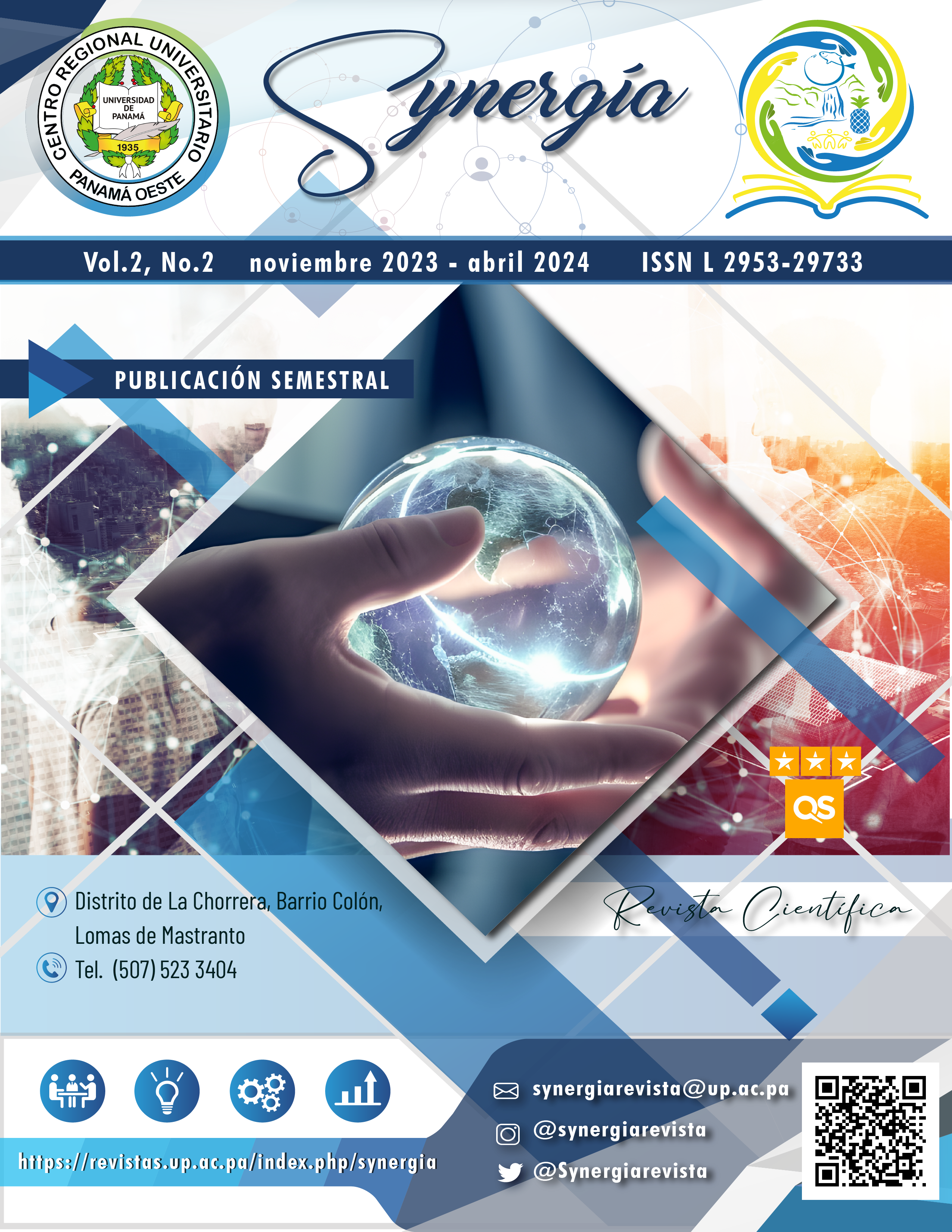

Copyright (c) 2023 Synergía

This work is licensed under a Creative Commons Attribution-NonCommercial-ShareAlike 4.0 International License.
Whenever a text-reader interaction takes place, textual analysis shows links on different language fields in its systemic nature and the relationship between the semantic, the syntax and the discursive pragmatic as a mean of knowledge and sociocultural interaction.
The general objective of this research is to present qualitative aspects about the discourse linguistic analysis from a scientific typology.
A specific objective arises from it: to make the discourse linguistic analysis from a scientific journal, named “Genotipification of Rotavirus in children under 5 years old in the south region of Ecuador”.
The study design of this analysis was based on the discursive-functional method, reflected in the following linguistic variables: grammatical explanations, lexicon, morphology, and scientific syntax, cognitive and social, explanations, which were applied to the study of this scientific article, showing a significant relation among them.
As a result, from this investigation, we have a linguistic analysis by levels: lexical level: a technical vocabulary with unknown voices by the context and by the procedures of word families. Morphological level: predominance of the noun, a moderate use of the adjective, third person conjugation in most of the verbs, use the se pronoun. Syntactic level: structure it is written in third person, affirmative declarative sentence predominance, reference function predominance, linguistic functions of the scientific discourse found: autonomous and independent functions.
In conclusion, the presented hypothesis has been confirmed, since when analyzing the discourse in the scientific journal article from a textual typology, the study was primarily based on the lexical and its linguistic characteristics which involved all the language level.